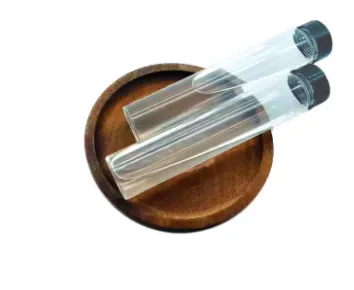Warning: Undefined array key "title" in /home/www/wwwroot/HTML/www.exportstart.com/wp-content/themes/1198/header.php on line 6
Warning: Undefined array key "file" in /home/www/wwwroot/HTML/www.exportstart.com/wp-content/themes/1198/header.php on line 7
Warning: Undefined array key "title" in /home/www/wwwroot/HTML/www.exportstart.com/wp-content/themes/1198/header.php on line 7
Warning: Undefined array key "title" in /home/www/wwwroot/HTML/www.exportstart.com/wp-content/themes/1198/header.php on line 7
- Afrikaans
- Albanian
- Amharic
- Arabic
- Armenian
- Azerbaijani
- Basque
- Belarusian
- Bengali
- Bosnian
- Bulgarian
- Catalan
- Cebuano
- China
- China (Taiwan)
- Corsican
- Croatian
- Czech
- Danish
- Dutch
- English
- Esperanto
- Estonian
- Finnish
- French
- Frisian
- Galician
- Georgian
- German
- Greek
- Gujarati
- Haitian Creole
- hausa
- hawaiian
- Hebrew
- Hindi
- Miao
- Hungarian
- Icelandic
- igbo
- Indonesian
- irish
- Italian
- Japanese
- Javanese
- Kannada
- kazakh
- Khmer
- Rwandese
- Korean
- Kurdish
- Kyrgyz
- Lao
- Latin
- Latvian
- Lithuanian
- Luxembourgish
- Macedonian
- Malgashi
- Malay
- Malayalam
- Maltese
- Maori
- Marathi
- Mongolian
- Myanmar
- Nepali
- Norwegian
- Norwegian
- Occitan
- Pashto
- Persian
- Polish
- Portuguese
- Punjabi
- Romanian
- Russian
- Samoan
- Scottish Gaelic
- Serbian
- Sesotho
- Shona
- Sindhi
- Sinhala
- Slovak
- Slovenian
- Somali
- Spanish
- Sundanese
- Swahili
- Swedish
- Tagalog
- Tajik
- Tamil
- Tatar
- Telugu
- Thai
- Turkish
- Turkmen
- Ukrainian
- Urdu
- Uighur
- Uzbek
- Vietnamese
- Welsh
- Bantu
- Yiddish
- Yoruba
- Zulu
Jul . 28, 2024 19:37 Back to list
Understanding Xylitol Benefits, Uses, and Important Information You Should Know About This Sweetener
Xylitol The Sweet Alternative
Xylitol is a sugar alcohol that has gained popularity as a low-calorie sweetener, especially in recent years. With its growing presence in the market, many people have questions about its safety, health benefits, and uses. This article aims to provide a comprehensive overview of xylitol, addressing its benefits, potential drawbacks, and applications.
What is Xylitol?
Xylitol is a naturally occurring substance found in small amounts in various fruits and vegetables. It is a five-carbon sugar alcohol that has a sweetness comparable to sucrose (table sugar), yet it contains about 40% fewer calories. Typically derived from birch trees or corn, xylitol is a popular ingredient in sugar-free products such as chewing gum, mints, and dental hygiene items.
Health Benefits of Xylitol
One of the most significant advantages of xylitol is its dental health benefits. Unlike regular sugar, xylitol is not fermented by oral bacteria, meaning it does not contribute to the formation of cavities. Studies have shown that xylitol can reduce the levels of decay-causing bacteria in the mouth, leading to a decreased risk of tooth decay and gum disease. Additionally, xylitol can help increase saliva flow, which is beneficial for maintaining oral health, especially for individuals who suffer from dry mouth.
Aside from dental benefits, xylitol has a low glycemic index, making it suitable for individuals with diabetes or those wanting to manage their blood sugar levels. It causes a smaller increase in blood sugar levels compared to conventional sugars, making it a safer alternative for those monitoring their carbohydrate intake.
xylitol faq

Uses in Food Products
Xylitol is a versatile sweetener that can be used in various food products. Its ability to mimic the sweetness of sugar makes it an excellent substitute in baking and cooking. Many brands of sugar-free gum and candy use xylitol as a primary sweetener due to its tooth-friendly properties. Furthermore, it is common in sugar-free desserts, protein bars, and beverages, appealing to health-conscious consumers.
Potential Drawbacks
While xylitol offers numerous health benefits, there are some potential drawbacks to consider. One of the primary concerns is gastrointestinal discomfort. Some individuals may experience bloating, gas, or diarrhea when consuming xylitol in large amounts, as sugar alcohols can have a laxative effect on the digestive system. It’s recommended to gradually introduce xylitol into the diet to assess tolerance.
Moreover, xylitol is extremely toxic to dogs. Even a small amount can lead to severe health issues, including a rapid drop in blood sugar levels and potential liver failure. Pet owners should be vigilant and ensure that products containing xylitol are kept out of reach.
Final Thoughts
In summary, xylitol is a beneficial and versatile sugar substitute that offers numerous health advantages, particularly for dental care and blood sugar management. Its use in a variety of sugar-free products makes it an appealing choice for many consumers seeking healthier options. However, it is essential to use xylitol in moderation and be mindful of its potential effects on both humans and pets. As more research emerges, xylitol may continue to solidify its place in the market as a safe and effective alternative to regular sugar.
Latest news
-
Certifications for Vegetarian and Xanthan Gum Vegetarian
NewsJun.17,2025
-
Sustainability Trends Reshaping the SLES N70 Market
NewsJun.17,2025
-
Propylene Glycol Use in Vaccines: Balancing Function and Perception
NewsJun.17,2025
-
Petroleum Jelly in Skincare: Balancing Benefits and Backlash
NewsJun.17,2025
-
Energy Price Volatility and Ripple Effect on Caprolactam Markets
NewsJun.17,2025
-
Spectroscopic Techniques for Adipic Acid Molecular Weight
NewsJun.17,2025

